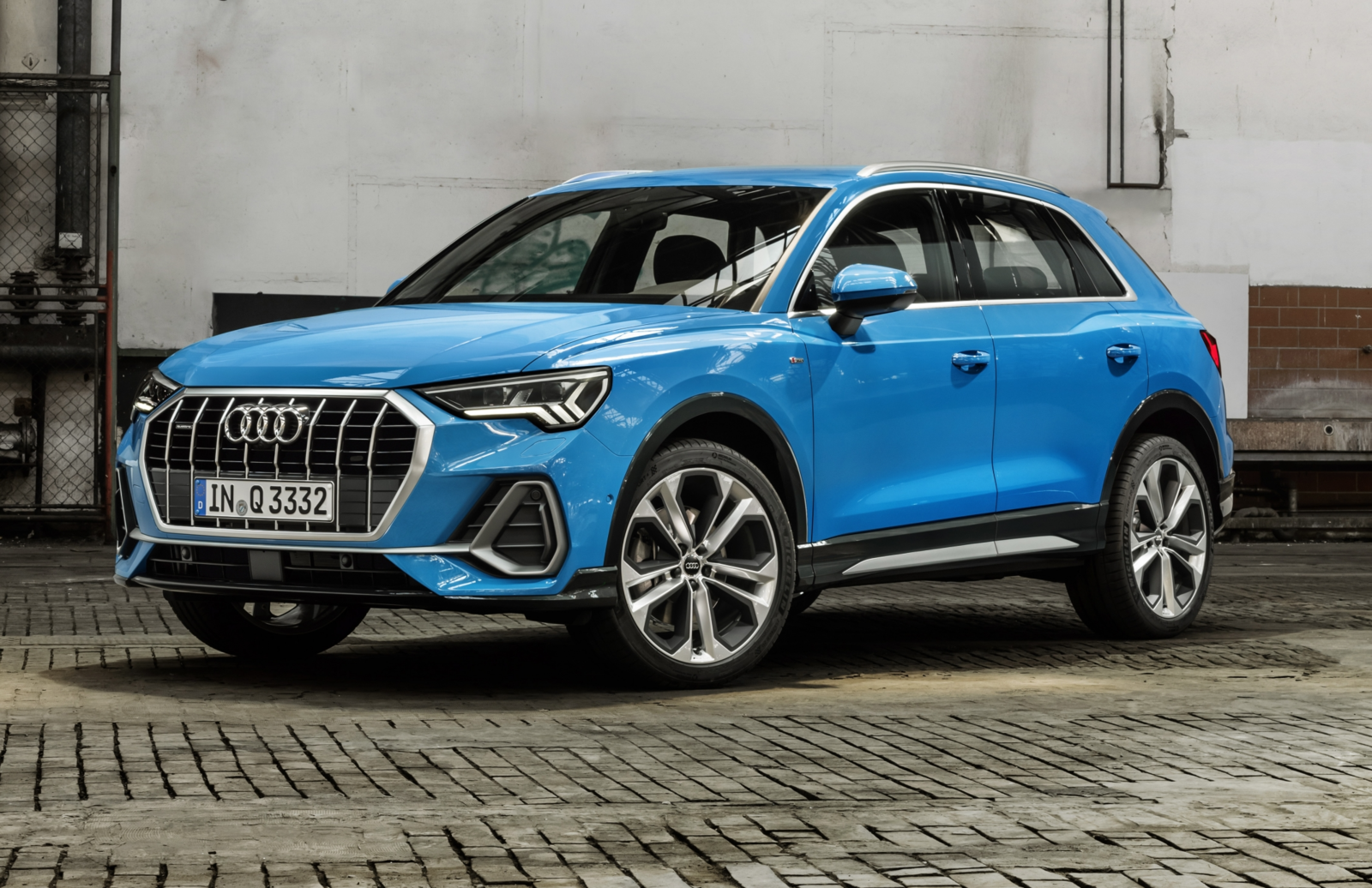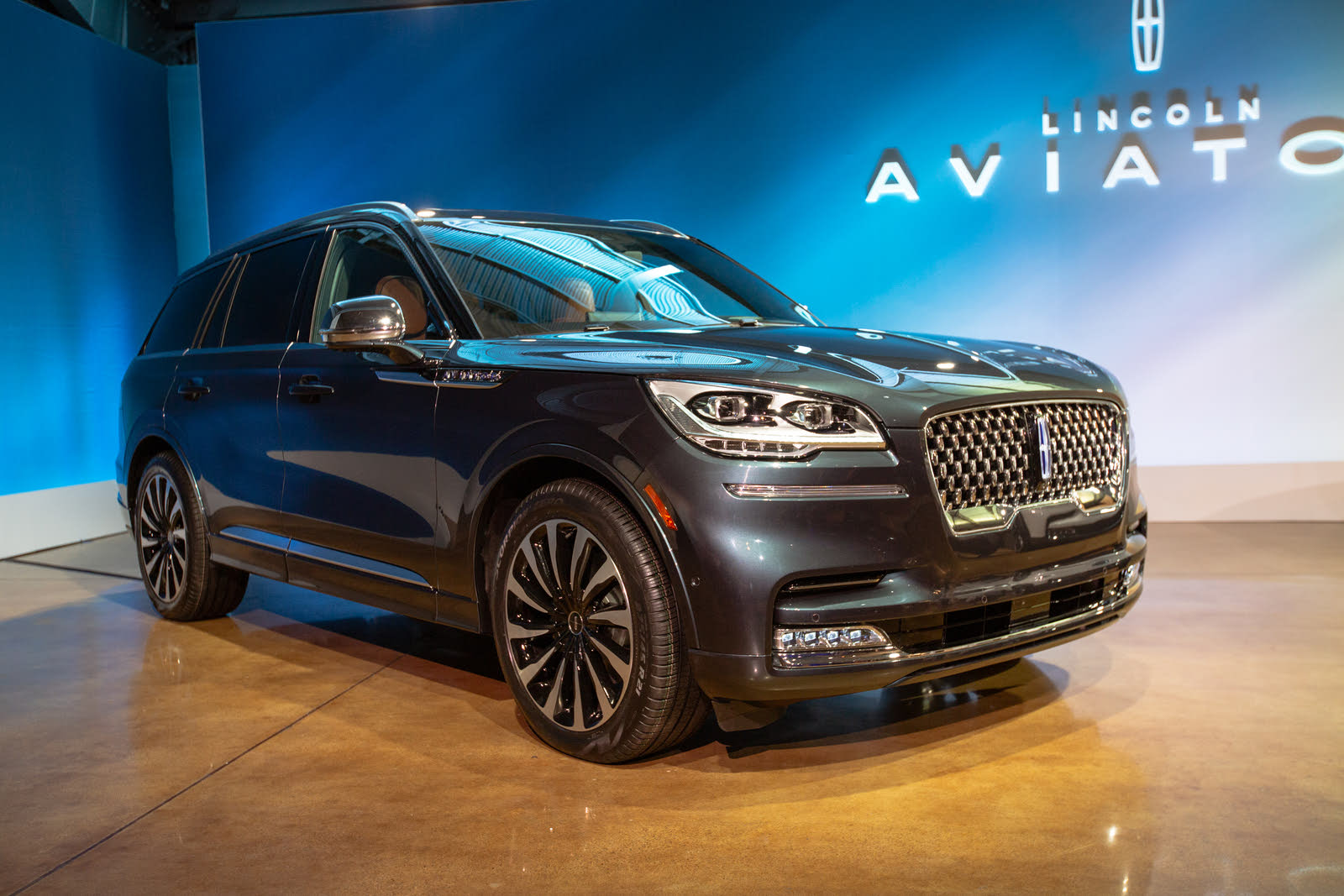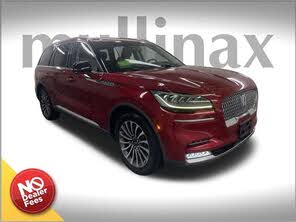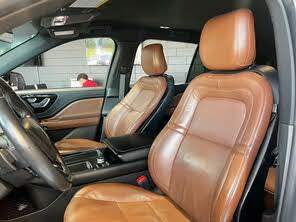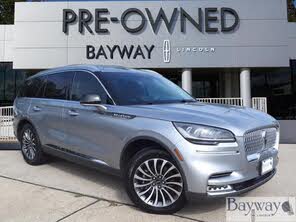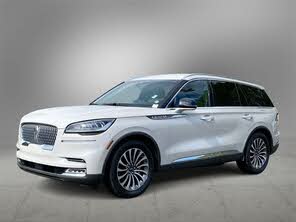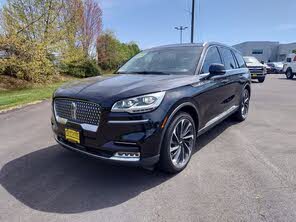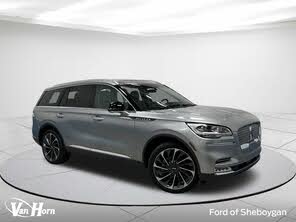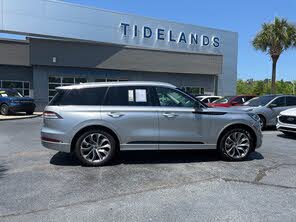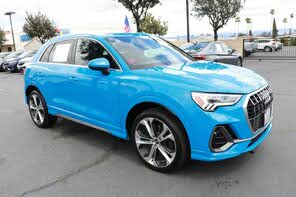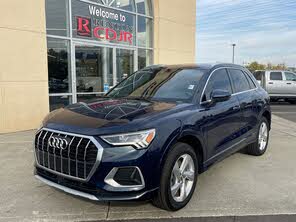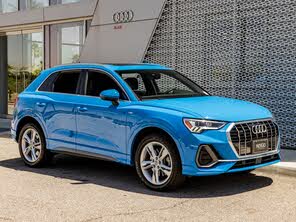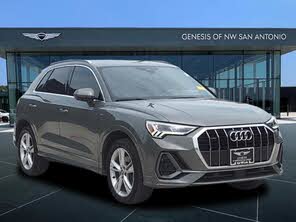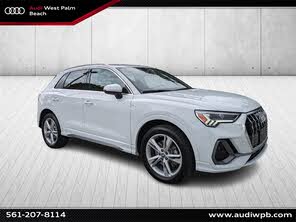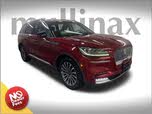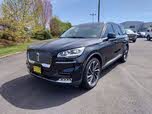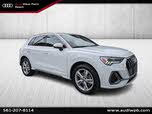2019 Audi Q3 vs 2020 Lincoln Aviator
Overview | |
MSRP$34,700 | MSRP$51,100 |
Average price$23,957 | Average price$39,191 |
Listings59 | Listings547 |
Ratings & Reviews | |
User Reviews | User Reviews |
Expert reviews8.2 out of 10 | Expert reviews8.2 out of 10 |
Pros
| |
2019 Audi Q3 Reviews SummaryIf you’ve spent any time on our site or you follow the car industry in general, you’ll know that small SUVs and crossovers are kings right now, and it’s easy to see why. Consider vehicles like the Volvo XC40, BMW X1, or Land Rover Range Rover Evoque (if you’re not into the whole brevity thing). While these vehicles might excel at different things, nearly every vehicle in the subcompact luxury SUV market aims for the same balance of comfortable interiors, composed handling, and the latest infotainment and safety technologies. But these vehicles all typically suffer in the same areas: a lack of cargo and backseat space, and less-than-thrilling performance. While they won’t be as spacious as a larger SUV or even some station wagons, they all have enough space for some weekend bags, groceries, or all the kid’s gear for school or practice. The all-new Audi Q3 feels larger than before. It also feels like Audi made fewer compromises than it did with the last Q3. As a result, the 2019 Q3 is one of the most compelling entries in the subcompact SUV market. | |
2020 Lincoln Aviator Reviews SummaryThe heyday for Lincoln was more than a half-century ago. Those postwar years of prosperity and optimism were the perfect time for cars like the Continental and others. They delivered comfort and luxury, wrapped in midcentury modern styling. Even as recently as the 1990s, Lincoln was still a popular brand, riding the SUV craze with its Navigator. But after the turn of the century, Lincoln lost its ability to create new designs and looked inward and backward. Sure, retro-themed cars like the redesigned Mustang, PT Cruiser, and Chevy HHR had turned some heads, but none of those came from luxury brands. The BMWs and Mercedes of the world were all looking forward and pushing the envelope for contemporary automotive design. Meanwhile, Lincoln offered the MKX, which was based on the Ford Edge and featured ’66 Continental styling. Neat in a vacuum, but off-base compared to the modern luxury market. This experimental phase with various retro looks coincided with the move to the MK-# alphabet-soup naming convention and big improvements in the Ford lineup, where top-end trims of the Fusion overlapped with an entry-level trim of the MKZ. The combination left Lincoln a confusing, anonymous afterthought in the modern luxury game. But Lincoln is finally ready to change all that. It has a new cohesive design language, its focus is once again on luxury, and the three-letter naming convention that never meant anything to anyone other than Lincoln marketers is gone. The brand led with the 2017 Continental and 2018 Navigator, which are each impressive in their own right. But the company's lineup is growing and now includes the all-new 2020 Lincoln Aviator. Named after a luxury variant of the 2002-2005 Ford Explorer, this new Aviator is also based on the contemporary Explorer platform, but it's a luxury vehicle in its own right. Much of the success of the Lincoln brand may hinge on this midsize, 3-row luxury SUV, so you need to consider its competition, such as the Audi Q7, Infiniti QX60, and all-new Cadillac XT6. Read on to learn if Lincoln’s take on luxury will stand out in a crowded competitive field. | |
Popular Features & Specs | |
Engine2.0L 228 hp I4 | Engine3.0L 400 hp V6 |
Drive TrainAWD | Drive TrainRWD |
Seating Capacity5 | Seating Capacity7 |
Horsepower228 hp @ 5000 rpm | Horsepower |
MPG City19 | MPG City18 |
MPG Highway27 | MPG Highway26 |
Engine | |
Engine Name2.0L 228 hp I4 | Engine Name3.0L 400 hp V6 |
Torque258 lb-ft @ 1700 rpm | Torque |
Horsepower228 hp @ 5000 rpm | Horsepower |
DrivetrainAWD | DrivetrainRWD |
Fuel Economy | |
MPG City19 | MPG City18 |
MPG Highway27 | MPG Highway26 |
Interior | |
Leather SeatsStandard | Leather Seats |
Seating Capacity5 | Seating Capacity7 |
Key Features | |
Sunroof/MoonroofStandard | Sunroof/Moonroof |
Safety | |
Front Crash Overall4 | Front Crash Overall5 |
Side Crash Overall5 | Side Crash Overall5 |
Dimensions & Capacity | |
Cargo Space23.7 cu ft | Cargo Space18.3 cu ft |
Curb Weight3902 lbs | Curb Weight4764 lbs |
Height62.9 in | Height69.8 in |
Length176.6 in | Length199.3 in |
Width79.7 in | Width89.9 in |
Wheelbase105.5 in | Wheelbase119.1 in |
Maximum Payload1091 lbs | Maximum Payload |
Number of doors4 | Number of doors4 |
Maximum Towing Capacity4400 lbs | Maximum Towing Capacity |
Overview | ||
MSRP | $34,700 | $51,100 |
Average price | $23,957 | $39,191 |
Listings | ||
Ratings & Reviews | ||
User reviews | 4.5 | 4.5 |
Expert reviews | 8.2 out of 10Read full review | 8.2 out of 10Read full review |
Pros & cons | Pros
| |
Summary | If you’ve spent any time on our site or you follow the car industry in general, you’ll know that small SUVs and crossovers are kings right now, and it’s easy to see why. Consider vehicles like the Volvo XC40, BMW X1, or Land Rover Range Rover Evoque (if you’re not into the whole brevity thing). While these vehicles might excel at different things, nearly every vehicle in the subcompact luxury SUV market aims for the same balance of comfortable interiors, composed handling, and the latest infotainment and safety technologies. But these vehicles all typically suffer in the same areas: a lack of cargo and backseat space, and less-than-thrilling performance. While they won’t be as spacious as a larger SUV or even some station wagons, they all have enough space for some weekend bags, groceries, or all the kid’s gear for school or practice. The all-new Audi Q3 feels larger than before. It also feels like Audi made fewer compromises than it did with the last Q3. As a result, the 2019 Q3 is one of the most compelling entries in the subcompact SUV market. | The heyday for Lincoln was more than a half-century ago. Those postwar years of prosperity and optimism were the perfect time for cars like the Continental and others. They delivered comfort and luxury, wrapped in midcentury modern styling. Even as recently as the 1990s, Lincoln was still a popular brand, riding the SUV craze with its Navigator. But after the turn of the century, Lincoln lost its ability to create new designs and looked inward and backward. Sure, retro-themed cars like the redesigned Mustang, PT Cruiser, and Chevy HHR had turned some heads, but none of those came from luxury brands. The BMWs and Mercedes of the world were all looking forward and pushing the envelope for contemporary automotive design. Meanwhile, Lincoln offered the MKX, which was based on the Ford Edge and featured ’66 Continental styling. Neat in a vacuum, but off-base compared to the modern luxury market. This experimental phase with various retro looks coincided with the move to the MK-# alphabet-soup naming convention and big improvements in the Ford lineup, where top-end trims of the Fusion overlapped with an entry-level trim of the MKZ. The combination left Lincoln a confusing, anonymous afterthought in the modern luxury game. But Lincoln is finally ready to change all that. It has a new cohesive design language, its focus is once again on luxury, and the three-letter naming convention that never meant anything to anyone other than Lincoln marketers is gone. The brand led with the 2017 Continental and 2018 Navigator, which are each impressive in their own right. But the company's lineup is growing and now includes the all-new 2020 Lincoln Aviator. Named after a luxury variant of the 2002-2005 Ford Explorer, this new Aviator is also based on the contemporary Explorer platform, but it's a luxury vehicle in its own right. Much of the success of the Lincoln brand may hinge on this midsize, 3-row luxury SUV, so you need to consider its competition, such as the Audi Q7, Infiniti QX60, and all-new Cadillac XT6. Read on to learn if Lincoln’s take on luxury will stand out in a crowded competitive field. |
Video | ||
Popular Features & Specs | ||
Engine | 2.0L 228 hp I4 | 3.0L 400 hp V6 |
Drive Train | AWD | RWD |
Seating Capacity | 5 | 7 |
Horsepower | 228 hp @ 5000 rpm | |
MPG City | 19 | 18 |
MPG Highway | 27 | 26 |
Engine | ||
Engine Name | 2.0L 228 hp I4 | 3.0L 400 hp V6 |
Torque | 258 lb-ft @ 1700 rpm | |
Horsepower | 228 hp @ 5000 rpm | |
Drivetrain | AWD | RWD |
Fuel Economy | ||
MPG City | 19 | 18 |
MPG Highway | 27 | 26 |
Interior | ||
Leather Seats | Standard | |
Seating Capacity | 5 | 7 |
Key Features | ||
Sunroof/Moonroof | Standard | |
Safety | ||
Front Crash Overall | 4 | 5 |
Side Crash Overall | 5 | 5 |
Dimensions & Capacity | ||
Cargo Space | 23.7 cu ft | 18.3 cu ft |
Curb Weight | 3902 lbs | 4764 lbs |
Height | 62.9 in | 69.8 in |
Length | 176.6 in | 199.3 in |
Width | 79.7 in | 89.9 in |
Wheelbase | 105.5 in | 119.1 in |
Maximum Payload | 1091 lbs | |
Number of doors | 4 | 4 |
Maximum Towing Capacity | 4400 lbs | |

By: CarGurus + AI
This car comparison has been created with using generative AI. It is based entirely on CarGurus expert review content, ratings and data, and leverages our extensive library of hands-on product tests to create thousands of unique comparisons to help shoppers choose the right car.
